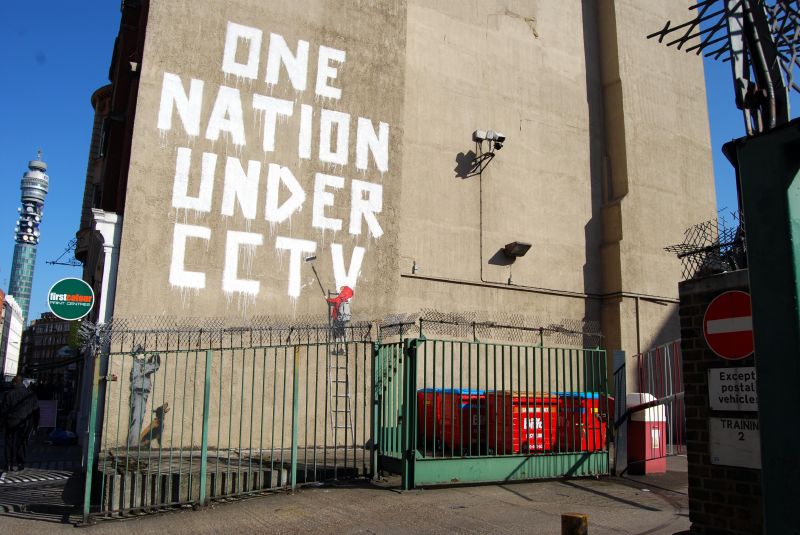It’s right that Tom Mulcair is leading the good fight in Parliament for Canadians’ right to privacy. But for many of us — left wingers, to be precise — the battle was lost decades ago. I know so from personal experience.
Long ago, before the internet and social media, drones and digital meta-surveillance, CSIS and CSEC, the responsibility for protecting our home and native land from subversion, treason and especially opposition to government policies belonged to the RCMP. It’s true the Mounties were already burdened by other peace, order and good government responsibilities like burning down barns, breaking strikes, pepper-spraying demonstrators and violating female colleagues (tasering unarmed civilians had not yet been perfected). Some of this was shockingly documented by the 1981 Royal Commission of Inquiry into Certain Activities of the RCMP, the activities in question being entirely illegal. But somehow, devoted as they were, they found time to spy on huge numbers of Canadians as well.
Hundreds of apparently underemployed officers were mobilized to pour over such clandestine sources as daily newspapers in hot pursuit of those who threatened national security. The suspects included, as we later learned, Tommy Douglas, trade unionists, peace activists, students and contributors to tiny left-wing magazines that often only survived thanks to RCMP subscriptions. At one stage, the RCMP had illicitly amassed no fewer than 500,000 files on such unsavory citizens.
One day back then, ace Toronto lawyer Paul Copeland and I decided to show our appreciation to the Mounties for all this dedication. Copeland applied for the files they had accumulated on each of us, and eventually we each received a highly edited and heavily redacted selection of top-secret documents like newspaper articles that proved conclusively that we had spent our lives fighting for good social justice causes that we had always proudly proclaimed we were spending our lives fighting for.
The RCMP, the material showed, had been spying on both of us since the mid-1960s. For me, it was wonderfully nostalgic. They knew all about my exciting interactions, a full quarter-century earlier, with the spooks and jailers of old white Rhodesia, which had at the time been prominently covered in Toronto newspapers.
As for Copeland, despite huge swaths of ugly black blots, the documents showed that a certain Cpl. Schmidt early on recognized him as “one of the best lawyers in Toronto….He has supported every progressive cause over the years….He has not advocated or condoned violence….He has a genuine desire to assist people and sincerely believes in bringing about positive social change.”
Of course Paul’s mother would gladly have told Cpl. Schmidt all that and saved him all those months of laborious research in some dreary archive. Still, as another Mountie reported, Copeland was openly critical of “excessive police powers” of all kinds, so despite his curious failure to advocate violence, it was apparently necessary to keep spying on him. You can’t be too safe.
After I wrote glowingly about our excellent adventure, envious readers demanded to know how they too could find out what the Mounties had uncovered about them. With Paul’s expertise, I produced another column detailing precisely how any citizen could get hold of her or his own file. The Privacy Commissioner later told me his office had been overwhelmed by the subsequent requests and that he couldn’t have been more pleased.
But this right of Canadians to seek their own undisclosed files has not yet been gutted. In fact, thanks to the British Columbia Civil Liberties Association (BCCLA), the legions of leftist agitators and renegades who regularly read this column can do so this very day. The BCCLA has just issued guidelines so that you too can discover whether you’re considered spy-worthy by those who stand on guard for right-thinking Canadians. It’s all about knowing how to use Canada’s Access to Information Act and Privacy Act to discover whether anonymous spooks are keeping a file on you, and indeed to learn about many other unpublicized activities of our government as well.
These invaluable directions can be accessed here. Best of all, the site provides a series of letter-writing templates you can use to send in your request. Of course, like us, you’ll only find what some anonymous civil servant or political hack chooses to reveal, and you’ll never know what they’re holding back, if anything. And like us, you won’t know what you don’t know. But it’s better than nothing and costs next to nothing — just five bucks — to see if you’ve ever really succeeded in getting under the skin of the powers-that-be.
As for Paul Copeland and me, well, some things change. Copeland still supports every progressive cause imaginable yet he now has Top Secret national security clearance and for some years has been a Special Advocate with the right to see certain classified security material. Me? I’ve tried hard to maintain my revolutionary credentials yet find myself in The Globe and Mail. And Cpl. Schmidt and his fellow spies? They may have been replaced by an electronics program.
This article originally appeared in The Globe and Mail.
Image: Wikimedia Commons




